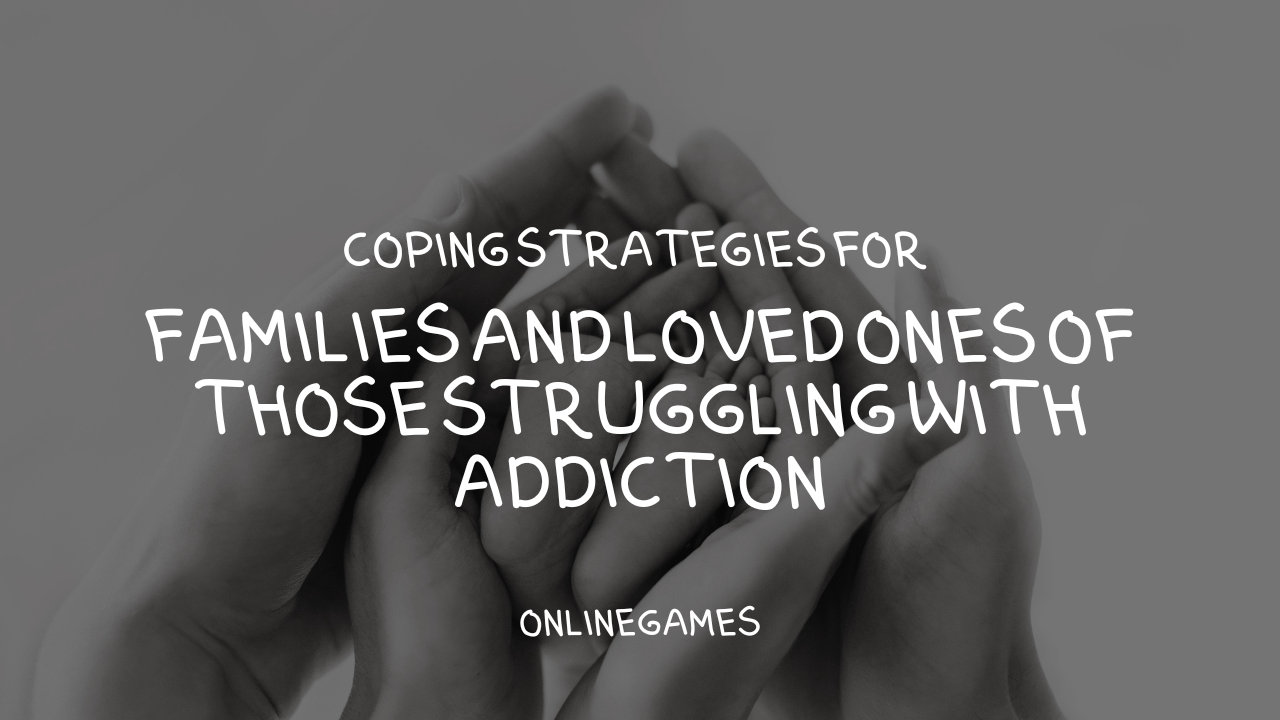When a loved one struggles with addiction, the impact ripples through the entire family. Family members often face a tumultuous journey filled with emotional pain, stress, and uncertainty. However, by employing effective coping strategies, families can support their loved ones while maintaining their well-being.
Understanding Addiction and Its Impact on Families
1. Recognizing Addiction as a Family Disease
Addiction doesn’t just affect the individual; it profoundly impacts family dynamics, relationships, and emotional health. Recognizing that addiction is a family disease can foster a more compassionate and unified approach to coping and recovery.
2. The Emotional Toll on Families
Families of individuals with addiction often experience a range of emotions including fear, anger, guilt, and despair. These emotions can lead to strained relationships and decreased mental health among family members. Understanding these emotional responses is a crucial first step towards healing.
Effective Coping Strategies for Families
1. Educate Yourself About Addiction
Knowledge is a powerful tool. Learning about addiction, its causes, and its effects can help demystify the condition and reduce stigma. Educated family members are better equipped to provide informed support and understand their loved one’s struggles.
2. Seek Support for Yourself
Families often neglect their own needs while focusing on their loved one’s recovery. Joining support groups such as Al-Anon or Nar-Anon provides a platform to share experiences, gain emotional support, and learn effective coping mechanisms from others facing similar challenges.
3. Set Healthy Boundaries
Establishing healthy boundaries is crucial to protect your emotional well-being and maintain a balanced relationship with your loved one. Boundaries might include limiting financial support or setting clear expectations regarding behaviour in the household.
4. Practice Self-Care
Self-care is vital for family members coping with a loved one’s addiction. Engage in activities that promote relaxation and mental well-being, such as exercise, hobbies, or spending time with friends. Prioritizing your health allows you to provide more effective support.
5. Communicate Openly and Honestly
Effective communication is key to fostering a supportive environment. Approach conversations with empathy and avoid blame or criticism. Use “I” statements to express your feelings and concerns without escalating conflicts.
6. Encourage Professional Help
Encourage your loved one to seek professional help, but understand that the decision to seek treatment must come from them. Offer support by researching treatment options, attending therapy sessions, or assisting with logistical arrangements if they are open to it.
7. Avoid Enabling Behavior
Enabling behaviour, such as covering up for your loved one’s actions or providing financial assistance for their substance use, can hinder their recovery. Encouraging accountability and allowing natural consequences can motivate them towards seeking help.
8. Focus on Positive Reinforcement
Highlighting your loved one’s positive behaviours and celebrating small victories can boost their motivation for recovery. Positive reinforcement fosters a sense of achievement and encourages continued progress towards sobriety.
9. Prepare for Relapse
Understanding that relapse can be a part of the recovery journey helps families manage expectations and remain supportive. If a relapse occurs, approach the situation with empathy and focus on encouraging your loved one to re-engage with their treatment plan.
Strengthening Family Resilience
1. Build a Supportive Environment
Creating a supportive home environment involves fostering open communication, showing unconditional love, and maintaining a positive outlook on recovery. Family members should work together to provide a stable and nurturing atmosphere.
2. Engage in Family Therapy
Family therapy provides a structured setting to address communication issues, resolve conflicts, and strengthen family bonds. It helps families understand each other’s perspectives and develop strategies for collective healing.
3. Develop a Relapse Prevention Plan
Working together to create a relapse prevention plan can prepare the family for potential challenges. This plan might include identifying triggers, setting goals, and establishing a network of support resources.
4. Focus on Long-Term Recovery
Recovery is a lifelong process that requires ongoing effort and support. Families should focus on sustaining long-term recovery by remaining involved in support groups, attending family therapy, and continuously encouraging their loved one’s commitment to sobriety.
Coping with a loved one’s addiction is an arduous journey, but with the right strategies, families can support their loved ones while maintaining their oealth and well-being. By educating themselves, seeking support, setting boundaries, and fostering a supportive environment, families can navigate the challenges of addiction together and emerge stronger.










